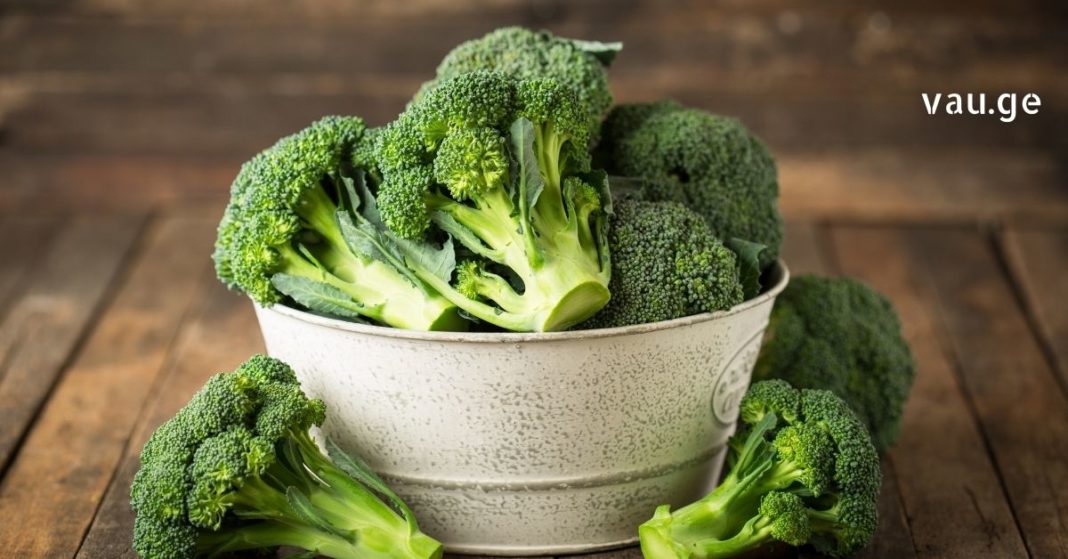There is an extensive list of foods that can be considered healthy, but in this case, we will focus on just a few key items that meet at least three of the following important health criteria:
- They are rich in fiber, vitamins, and essential minerals
- They contain antioxidants (compounds that help prevent oxidative stress and protect cells from cancerous changes), including vitamins A and E, as well as beta-carotene
- They promote cardiovascular health and support the body’s overall well-being
- They are low in calories
- They are relatively easy to obtain or access
Let’s take a closer look at these superfoods:
Almonds
Almonds are packed with fiber, riboflavin, magnesium, iron, and calcium. In fact, almonds contain more calcium than any other type of nut. A single serving (approximately 23 almonds) provides nearly half of the daily recommended intake of vitamin E. In addition to being a great source of plant-based protein and healthy fats, almonds significantly benefit heart health.
Apples
Apples are an excellent source of fiber and pectin, a compound that helps regulate cholesterol and blood sugar levels. Fresh apples are especially rich in vitamin C, a powerful antioxidant that protects blood vessels from damage and supports the regeneration of collagen. Including apples in your daily diet can help maintain a healthy metabolism and a strong immune system.
Blackberries
Blackberries are loaded with fiber and vitamin C. Just one cup contains around 84 calories, 3.6 grams of dietary fiber, and 14 mg of vitamin C. These berries are not only effective in preventing and treating urinary tract infections but also support brain health, improve memory, and help slow down the aging process.
Broccoli
Broccoli is one of the most nutrient-dense vegetables. It is high in calcium, folic acid, and dietary fiber. This cruciferous vegetable contains a wide variety of plant compounds that may help prevent chronic illnesses, particularly cardiovascular diseases and diabetes. It also offers vitamins C and A, which act as antioxidants that protect cells from damage.
Beans
A popular staple in many diets, beans are rich in iron, phosphorus, copper, and thiamine. Despite being low in calories, beans are a great source of plant-based protein and fiber. Due to the beneficial compounds they contain, beans can play a role in preventing chronic diseases and can be a valuable part of any well-balanced diet.
Salmon
Salmon is one of the best sources of omega-3 fatty acids, which are essential for heart health. These healthy fats help regulate heart rhythm and reduce harmful cholesterol and saturated fats in the bloodstream. Doctors often recommend incorporating fish, especially salmon, into the diets of individuals with cardiovascular concerns.
Spinach
Spinach is a nutritional powerhouse loaded with vitamins A, B6, and C, folic acid, riboflavin, calcium, iron, and magnesium. Thanks to its rich composition, spinach is considered one of the best foods to strengthen the immune system. It also has positive effects on skin and hair health.
Sweet Potatoes
Sweet potatoes are rich in beta-carotene, a precursor to vitamin A, along with fiber, and vitamins B6, C, and E, as well as folic acid. Like many vegetables, sweet potatoes are low in calories — one medium sweet potato contains only about 54 calories. In addition to supporting digestion and immunity, sweet potatoes also offer anti-aging benefits.
Vegetable Juice
Fresh vegetable juice is an excellent source of vitamins and minerals. It’s especially beneficial during dieting, as it is low in calories but provides a quick energy boost. Moreover, it contains lycopene — a powerful antioxidant that, according to some studies, may reduce the risk of heart disease and certain types of cancer.
Note: Vegetable juice can be high in sodium, so it is advisable to avoid consuming salty foods alongside it.
Wheat Germ
Wheat germ is rich in niacin, thiamine, riboflavin, vitamin E, folic acid, magnesium, phosphorus, iron, and zinc. It also provides a moderate amount of protein and fiber. This food is particularly beneficial for people with weakened immune systems or those suffering from chronic health conditions.
These ten foods not only meet the listed health criteria but also offer a variety of nutritional benefits. Incorporating them into your daily diet can help support your overall health, boost your immune system, and reduce the risk of numerous chronic diseases.


















